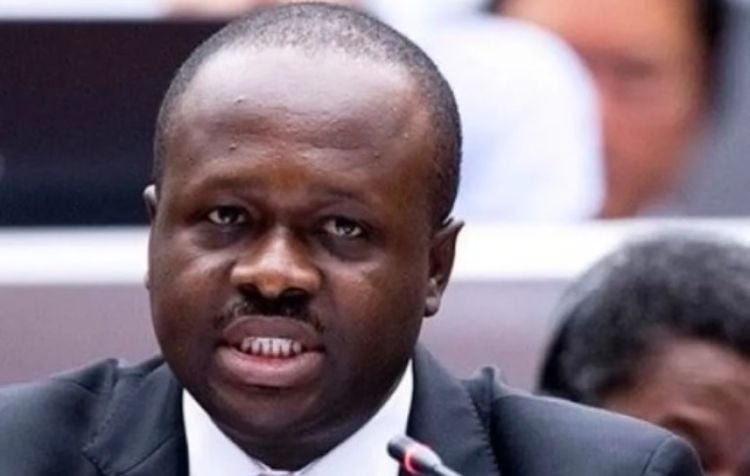The 2024 Ghanaian presidential election, culminating in the victory of John Dramani Mahama and his running mate, Professor Naana Jane Opoku-Agyemang, marked a significant turning point in the nation’s political landscape. Dr. Edward Omane Boamah, the National Democratic Congress’ (NDC) Director of Elections and IT, acknowledged the arduous journey to victory, emphasizing the resilience and dedication of party members and supporters who navigated a challenging electoral process. He expressed profound gratitude to the party’s executives, trainers, polling agents, and intermediaries, recognizing their instrumental roles in securing the hard-won victory. This victory, he stressed, was not easily achieved, but rather the product of concerted efforts and unwavering commitment in the face of adversity.
Dr. Omane Boamah’s statement highlighted the perceived bias of the Electoral Commission (EC), accusing the institution of exhibiting partiality towards the incumbent New Patriotic Party (NPP). He characterized the EC’s conduct as “crudely, sometimes criminally, rudely, arrogantly, and palpably partial,” suggesting deliberate attempts to obstruct the NDC’s path to victory. This alleged bias, according to Dr. Omane Boamah, created significant obstacles that demanded even greater determination from the NDC and its supporters. Their perseverance, he argued, ultimately triumphed over these challenges, underscoring the profound significance of the electoral outcome.
The victory, in Dr. Omane Boamah’s view, represented a resounding rejection of the Akufo-Addo-Bawumia administration’s governance style. It signaled a public desire for change and a renewed hope for a different direction in national leadership. The election also marked a historic milestone with the election of Professor Naana Jane Opoku-Agyemang as the country’s first female Vice President, a testament to the evolving political consciousness of the Ghanaian electorate and their embrace of inclusive leadership. This historic victory, according to Dr. Omane Boamah, carries with it a substantial responsibility to deliver on the expectations of the Ghanaian people.
The NDC’s victory, while celebrated as a triumph of resilience and determination, also serves as a stark reminder of the fragility of democratic processes. The allegations of bias against the EC raise concerns about the integrity of the electoral system and the need for continuous efforts to strengthen its impartiality and transparency. A fair and impartial electoral process is the cornerstone of any functioning democracy, and ensuring its integrity is paramount for maintaining public trust and fostering peaceful transitions of power. The challenges faced by the NDC during the election underscore the importance of vigilance in safeguarding democratic principles and holding institutions accountable for their actions.
The incoming Mahama administration faces the significant task of addressing the expectations that propelled them to victory. This includes fulfilling campaign promises, tackling pressing national issues, and fostering unity and reconciliation in a potentially polarized political climate. The mandate received by the NDC carries with it a responsibility to govern inclusively, addressing the needs of all citizens and working towards a more prosperous and equitable Ghana. The challenges ahead will undoubtedly require collaboration and a commitment to good governance principles to effectively navigate the complexities of national leadership.
Dr. Omane Boamah’s reflections on the election serve as both a celebration of victory and a sobering reminder of the continuous work required to strengthen democratic institutions and uphold the principles of fairness and transparency. The NDC’s victory signifies a renewed opportunity for progress and change in Ghana, and its success will depend on its ability to learn from the past, address the challenges of the present, and work towards a brighter future for all Ghanaians. The election of the nation’s first female Vice President further emphasizes the potential for inclusive leadership to shape a more representative and equitable political landscape.














